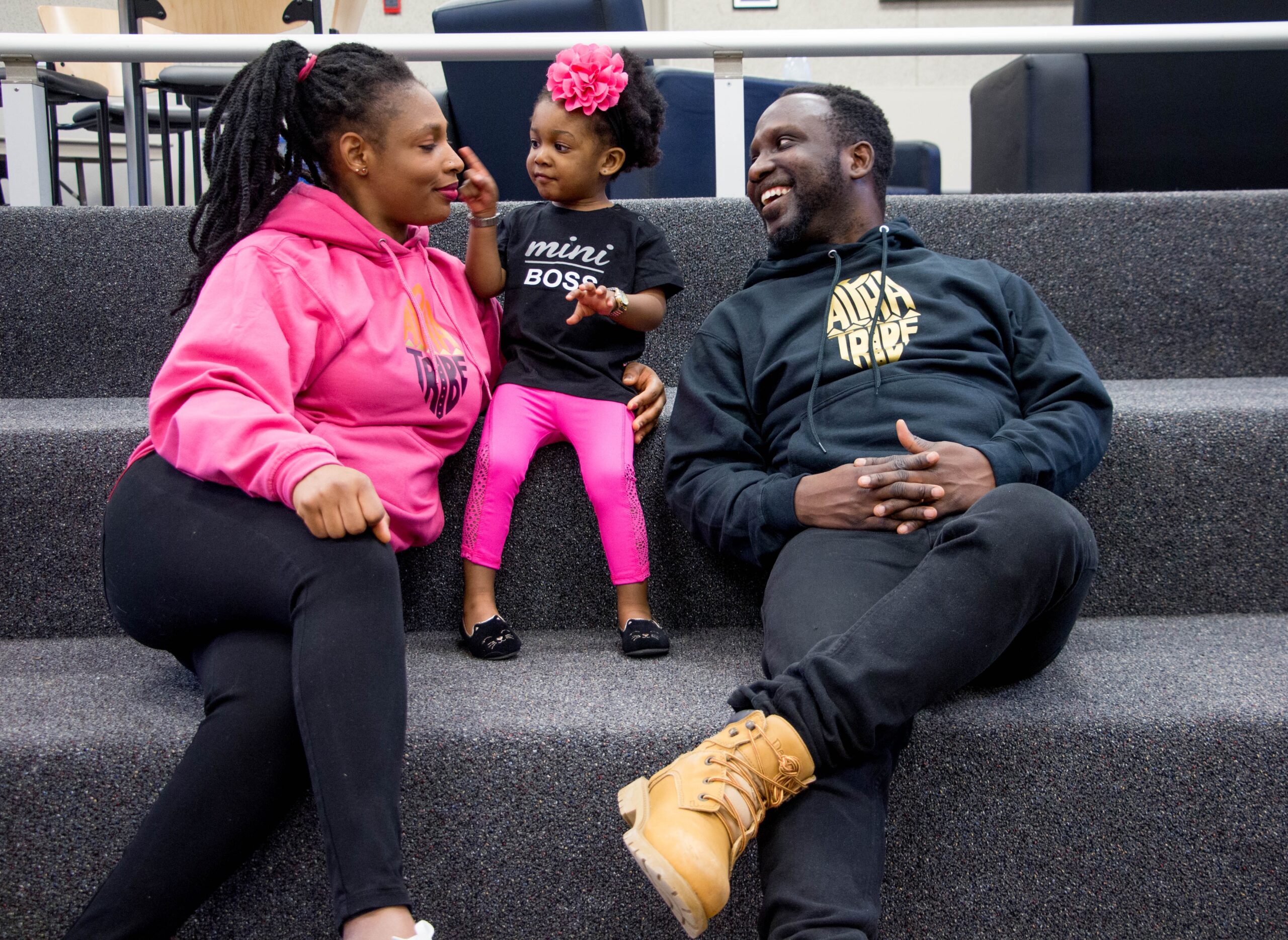
A few years ago, employees of the late-night show Jimmy Kimmel Live! quizzed fathers about very basic information regarding their children in a series of man-on-the-street-style interviews. They asked questions such as the name of their kids' elementary schools, their birth dates, pediatricians' names, and even eye colors. Although mothers knew the answer to every question, none of the fathers answered every question correctly. Not one.
Obviously, this was a video edited for the sake of comedy. But it speaks to the ways that even fathers who consider themselves present and involved can — and do — skip out on the nitty gritty details of parenting.
Recently, a tweet that went viral proved this very point.
The tweet turned into a discussion about the thankless, invisible work mothers take on.
When mom Sonya Bonczek asked fathers of her child's classmates for their email addresses to send invitations to her 3-year-old son’s birthday party, each of them gave her his wife's email address instead.
Jokingly, Bonczek, who works for University of North Carolina Press, tweeted that the whole exercise had now become a social experiment. Although she didn’t explicitly state what that experiment was, it was clear.
Would there be any fathers who took on the task of receiving and responding to the invitation instead of passing it along to their female partner? The tweet sparked a discussion online about the division of labor in the home, complete with more than a few men explaining why they just don’t do things like that.
'She’s just better at it,' many men said in defense of themselves.
One of the main excuses men offered up was that their wives were just better at it than they were.
Men used self-deprecating language to speak to their lack of responsibility and flattery to praise their wives. But people on Twitter were quick to note that this is because women have been socialized to do this type of work in family dynamics — not because they are inherently better.
One user wrote, “I'm only 'better' at it because I have been socialized to give a s— about staying on top of calendar planning. Men are literally capable of learning/bothering to use Google calendar.”
Men love making certain decisions, one Twitter user argued.
One woman claimed that the idea that men don’t like to be the point person when it comes to parenting is intentional, because men are more than willing to take on the role of decision maker and executor when it comes to tasks that aren’t relegated as women’s work.
She called the “she’s just better at it” argument “weaponised incompetence.” “So many men relish decision making/delegate roles in business but not in family. Dad so often get more choice in what to engage with and mum gets … everything that’s left.”
Several men suggested that they would be accused of cheating if they used their email.
One man suggested one reason men gave their wives' email addresses instead of accepting the invitation themselves was probably to avoid accusations of cheating. He wasn’t alone in this line of thinking, either. Apparently, any email from a woman to a man could be considered inappropriate or set off red flags.
“How dare you receive this Evite of a picture of dancing balloons, the mom behind this must want to f— you!” Oh s—, I didn’t think about that,” Sonya responded with a healthy dose of sarcasm.
Dads want to be heroic about the household labor fathers choose to do, suggested one man.
There was one man who offered this humble explanation as to why dads tend to opt out of this part of parenting. He suggested they simply want to engage in not only the more fun aspects but the ones that read as big, grand gestures rather than the everyday minutiae of parenting.
In a way, it’s a lovely sentiment, but it doesn’t help alleviate the day-to-day work of parenting. With moms taking on so much of the responsibility, it leaves little room for them to take the opportunities to do the lighter stuff we're sure many would prefer or even enjoy.
Research has found that trying to include fathers can often be a waste of time.
A Pew Research study from 2015 found that even with parents who both work full time, the mother in herterosexual relationships still does most of the scheduling for the children’s activities.
What makes the dynamic even more pervasive is that even when dads are interested in dividing the labor, the networks are so female-centered and female-led and managed that it can be a challenge for dads to break in.
Allison Daminger, an assistant professor of sociology at the University of Wisconsin, Madison, who studies how couples divide labor, found that when schools and doctors' offices call fathers, they often have to wait for him to contact the mother anyway, the *New York Times* reported.
It is getting better.

As frustrating as all of this is for some moms, it is getting better. A 2013 Pew report found that compared to fathers in the 1960s, men have more than doubled the amount of housework they do and tripled the amount of child care they provide.
Keith Gessen, author of Raising Raffi: The First Five Years, noted that the fathers who passed off the birthday invitation responsibility to their wives were also present at drop-off/pickup, when fathers of the past would have been working or simply elsewhere.
The tides are changing, but with the learning curve men have inherited, it’s taking some time.




